Tory leadership frontrunner sets out hardline Brexit stance after Theresa May’s resignation.
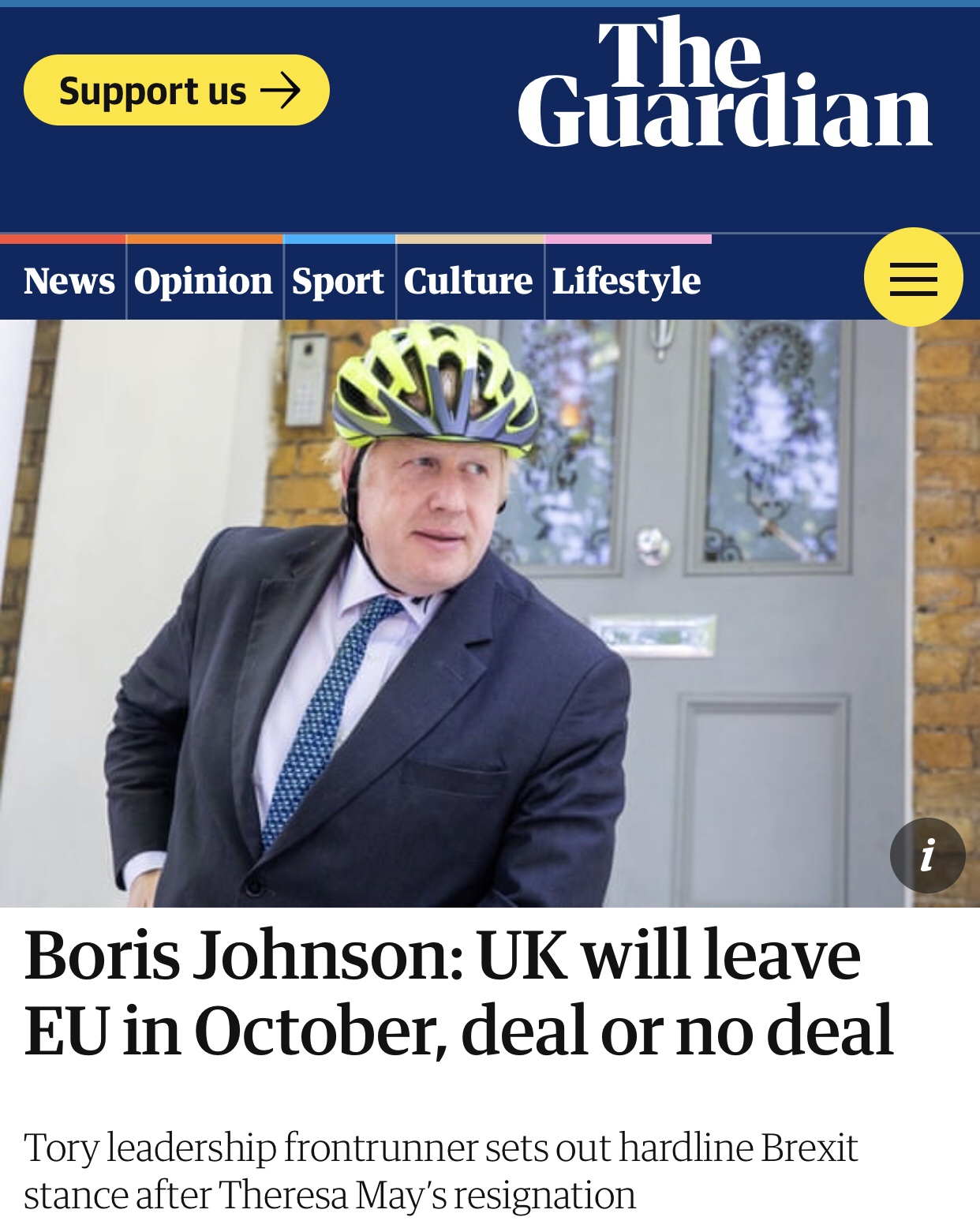
Boris Johnson has thrown down the gauntlet to his Conservative leadership rivals by insisting the UK must leave the EU by the end of October with or without a deal, as he set out a hardline Brexit stance just hours after Theresa May announced her resignation.
Johnson is the favourite among Conservative members to take over as prime minister by the last week of July, but he will face competition from as many as 20 rivals.
The foreign secretary, Jeremy Hunt, was the first cabinet minister to say he would stand, while Dominic Raab, the former Brexit secretary, said he would take time to think about it over the weekend. The environment secretary, Michael Gove, and the home secretary, Sajid Javid, are also expected to announce leadership bids in the coming days.
-//-
The contest is shaping up to be a test of where the candidates stand on Brexit, with Johnson taking a firm stance on leaving by the EU’s next deadline.
He told a conference in Interlaken, Switzerland: “We will leave the EU on 31 October, deal or no deal.”
He suggested he could try to renegotiate a better deal with Brussels before pressing ahead with the possibility of a no-deal Brexit if necessary. “A new leader will have the opportunity to do things differently and have the momentum of a new administration,” he said.
A supporter of Johnson said he would make an effort to secure changes to the current deal to try to ensure the Northern Ireland border backstop would not endure indefinitely, but he would press ahead with leaving on 31 October if that cannot be agreed with the EU27.
Raab, also a leave supporter, is attracting support from some Brexit hardliners in the party, which means Johnson will come under some pressure to demonstrate how prepared he is to leave without a deal.
Read the article here: Boris Johnson: UK will leave EU in October, deal or no deal
Source: The Guardian
The extent of corruption in Europe is “breathtaking” and it costs the EU economy at least 120bn euros (£99bn) annually, the European Commission says.
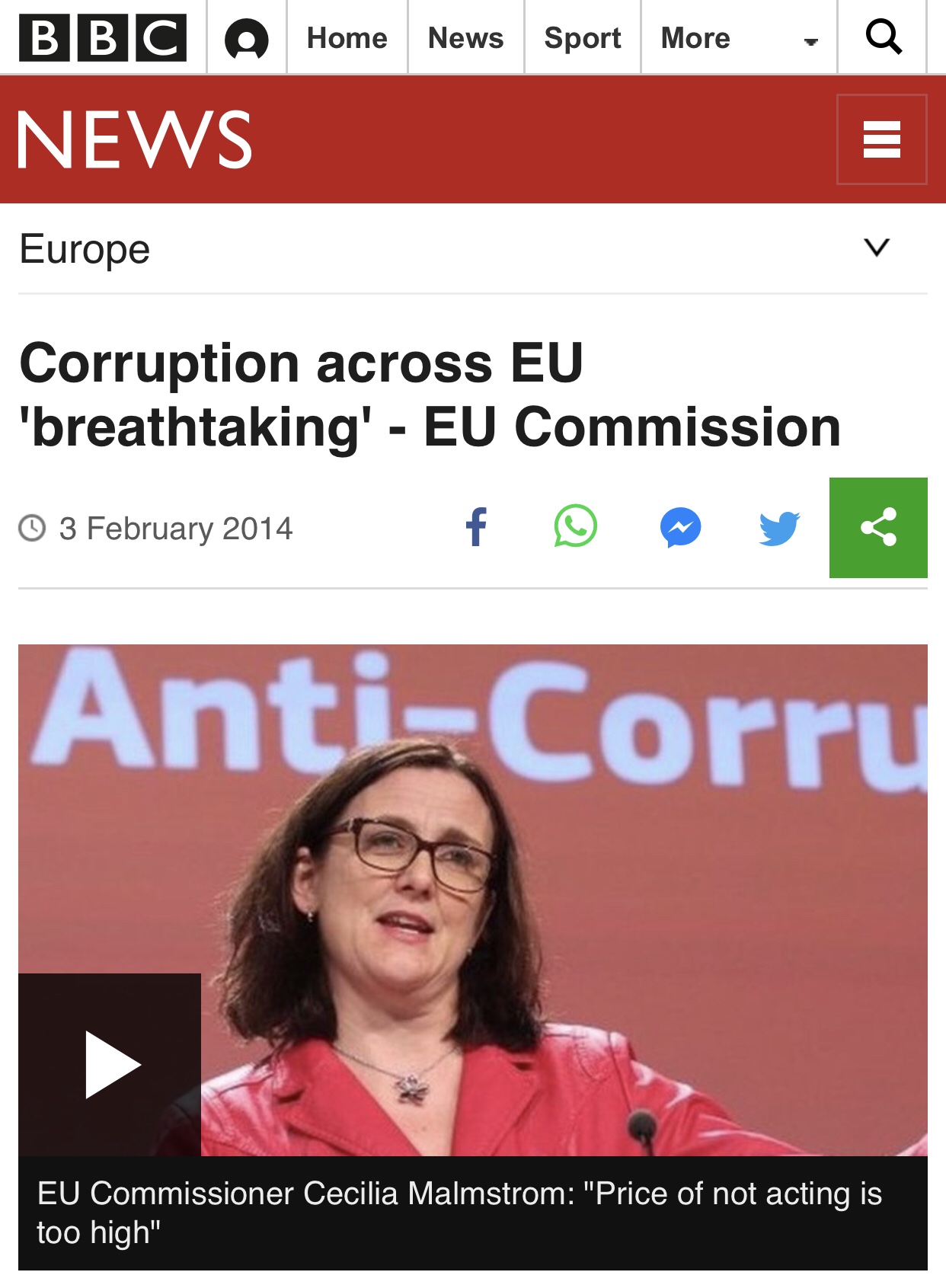
EU Home Affairs Commissioner Cecilia Malmstroem has presented a full report on the problem.
She said the true cost of corruption was “probably much higher” than 120bn.
Three-quarters of Europeans surveyed for the Commission study said that corruption was widespread, and more than half said the level had increased.
“The extent of the problem in Europe is breathtaking, although Sweden is among the countries with the least problems,” Ms Malmstroem wrote in Sweden’s Goeteborgs-Posten daily.
The cost to the EU economy is equivalent to the bloc’s annual budget.
For the report the Commission studied corruption in all 28 EU member states. The Commission says it is the first time it has done such a survey.
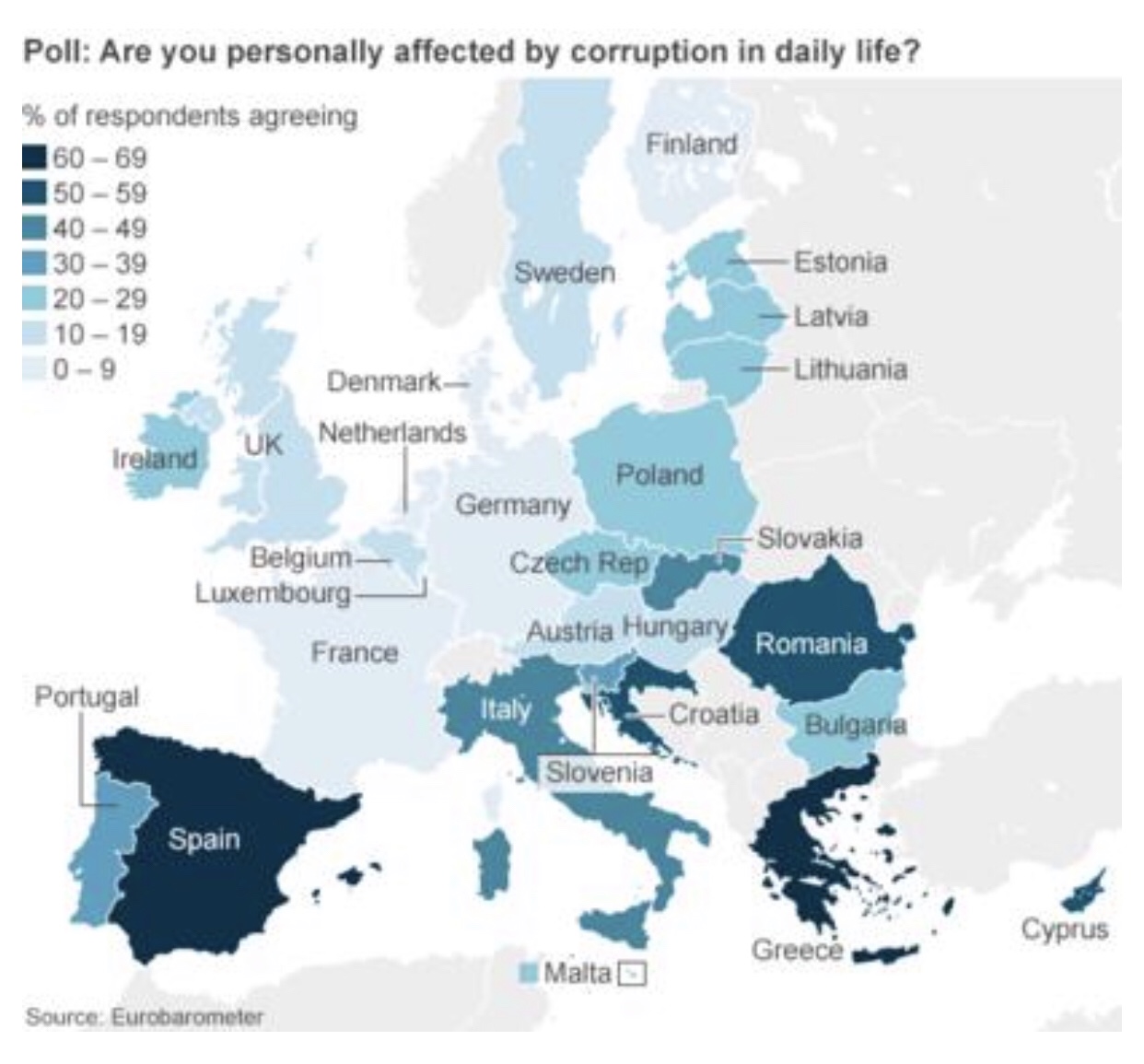
National governments, rather than EU institutions, are chiefly responsible for fighting corruption in the EU.
But Ms Malmstroem said national governments and the European Parliament had asked the Commission to carry out the EU-wide study. The Commission drafts EU laws and enforces compliance with EU treaties.
In the UK only five people out of 1,115 – less than 1% – said they had been expected to pay a bribe. It was “the best result in all Europe”, the report said.
But 64% of British respondents said they believed corruption to be widespread in the UK, while the EU average was 74% on that question.
In some countries there was a relatively high number reporting personal experience of bribery.
In Croatia, the Czech Republic, Lithuania, Bulgaria, Romania and Greece, between 6% and 29% of respondents said they had been asked for a bribe, or had been expected to pay one, in the past 12 months.
There were also high levels of bribery in Poland (15%), Slovakia (14%) and Hungary (13%), where the most prevalent instances were in healthcare.
Ms Malmstroem said corruption was eroding trust in democracy and draining resources from the legal economy.
“The political commitment to really root out corruption seems to be missing,” she complained.
The EU has an anti-fraud agency, Olaf, which focuses on fraud and corruption affecting the EU budget, but it has limited resources. In 2011 its budget was just 23.5m euros.
The Commission highlighted that:
- Public procurement (public bodies buying goods and services) forms about one-fifth of the EU’s total output (GDP) and is vulnerable to corruption, so better controls and integrity standards are needed
- Corruption risks are generally greater at local and regional level
- Many shortcomings remain in financing of political parties – often codes of conduct are not tough enough
- Often the existing rules on conflicts of interest are inadequately enforced
- The quality of corruption investigations varies widely across the EU
- The EU study includes two major opinion polls by Eurobarometer, the Commission’s polling service.
Four out of 10 of the businesses surveyed described corruption as an obstacle to doing business in Europe.
Sweden “is undoubtedly one of the countries with the least problems with corruption, and other EU countries should learn from Sweden’s solutions for dealing with the problem”, Ms Malmstroem said, pointing to the role of laws on transparency and openness.
Organised crime groups have sophisticated networks across Europe and the EU police agency Europol says there are at least 3,000 of them.
Bulgaria, Romania and Italy are particular hotspots for organised crime gangs in the EU, but white-collar crimes like bribery and VAT (sales tax) fraud plague many EU countries.
Last year Europol director Rob Wainwright said VAT fraud in the carbon credits market had cost the EU about 5bn euros.
Source: BBC
School strike for climate: Protests staged around the world.
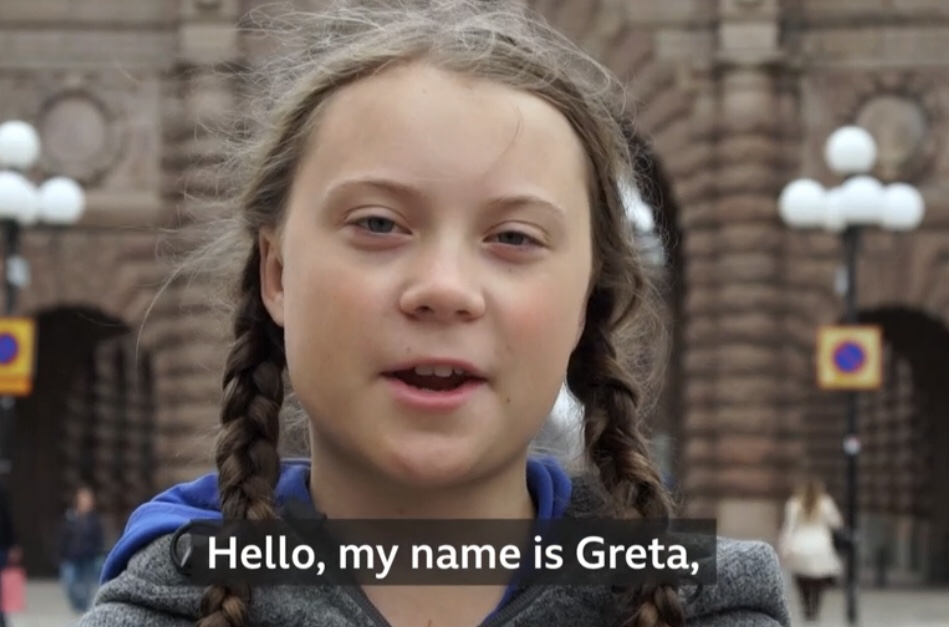
School students around the world have today gone on strike to demand action on climate change.
Organisers said more than a million ypung people joined the action in at least 110 countries on Friday.
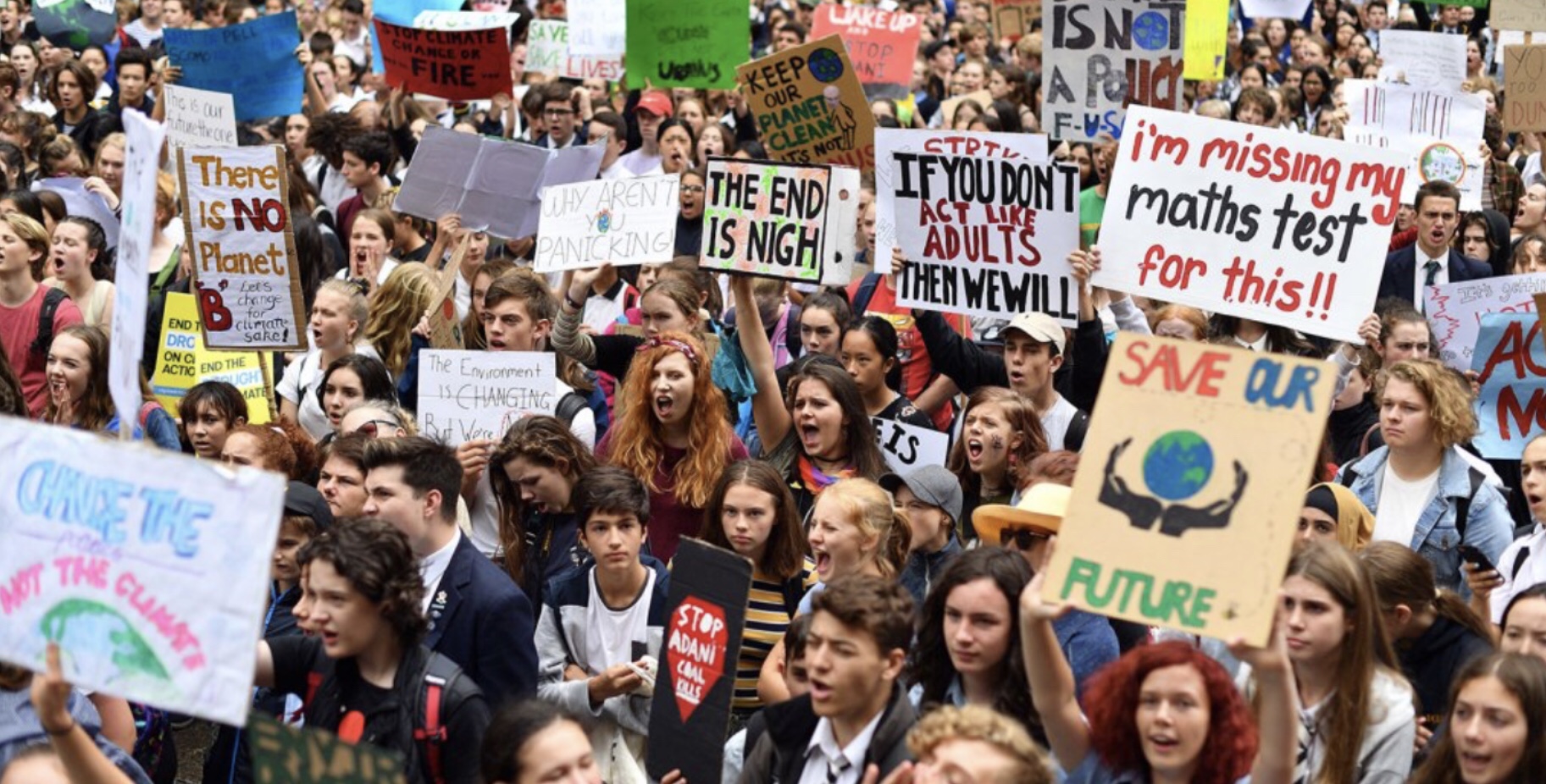
They are calling on politicians and businesses to take urgent action to slow global warming.
The strikes are inspired by student Greta Thunberg, who has become a global figurehead since protesting outside Sweden’s parliament in 2018.
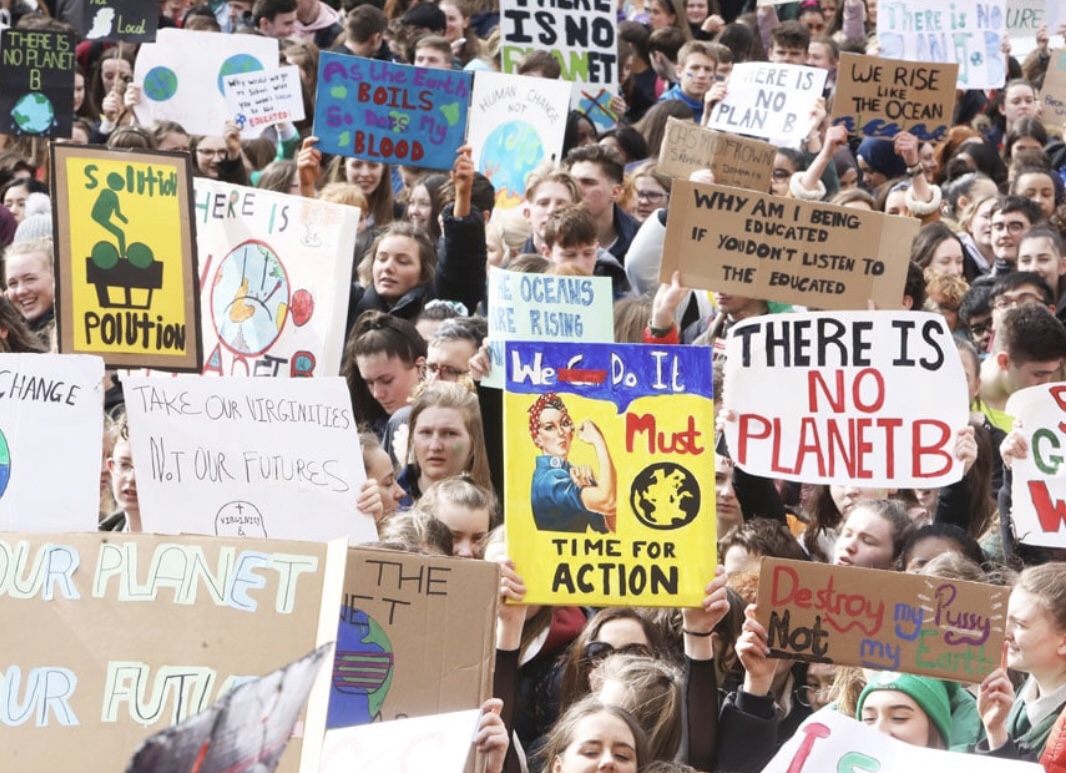
Carrying a “school strike for climate change” sign, the then 15-year-old said she was refusing to attend classes until Swedish politicians took action.

The youth movement “Fridays For Future” was the organizer of the global climate strike.

Climate Superstar 16-year old Greta Thunberg – a modern Pippi Longstocking – made a speech in Kungsträdgården in Stockholm. During her speech she “attacked” the politicians.
– “We are not here to get praise, we are not here because the adults should take selfies with us, she says. Do something instead” she said, asking people to strike from their jobs if politicians don’t take the necessary decisions for a better world.






You must be logged in to post a comment.